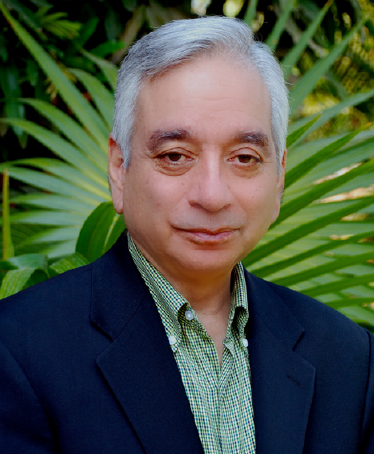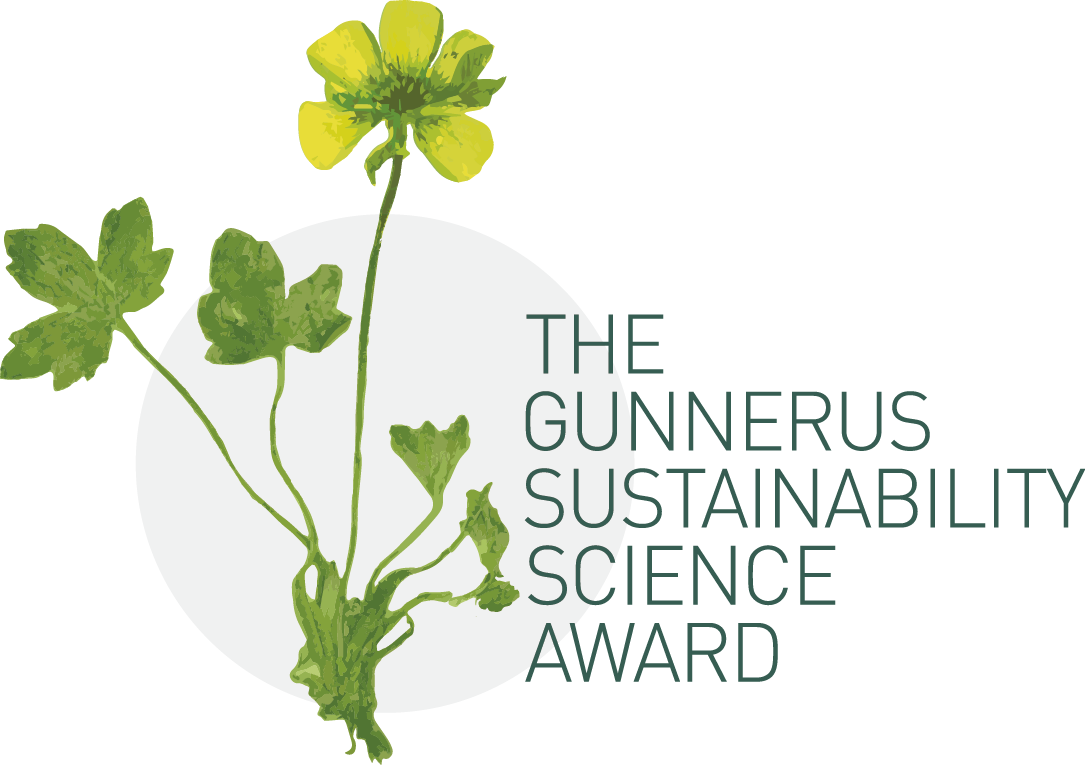Jury citation for the 2012 Gunnerus Award Laureate, Dr. Kamal Bawa
The Board of the Royal Norwegian Society of Sciences and Letters awarded the 2012 Gunnerus Award in Sustainability Science to Kamaljit Bawa, Distinguished Professor of Biology, at the Biology Department, University of Massachusetts, Boston, USA. The laureate is most often referred to as Kamal Bawa.
Kamal Bawa’s early research on the population biology of tropical forest trees, done in Central America, revolutionized our thinking regarding the ecology and evolution of forest trees, and thereby directly enhanced our ability to conserve tropical forests. His discoveries of unusual breeding systems, novel pollination mechanisms, and a diverse array of flowering patterns in tropical forest trees changed the prevailing notions about the population biology, ecology, and evolution of these trees.
Kamal Bawa was among the first to consider the role of resource allocation and sexual selection in the evolution of plant breeding systems and he advanced new mechanisms for the evolution of almost every major type of breeding system in plants. His group was among the first to use Simple DNA Sequence Repeats to study gene flow in tropical trees, and this approach opened up the way to extensively examine population genetic structure of tropical forest trees. This work showed that tropical forest trees are widely out-crossed with gene flow taking place over long distances. Of critical importance to biodiversity conservation, the work of Bawa and his students showed that genetic diversity of tropical trees can only be maintained by large populations spread over very large areas, and that fragmentation and habitat loss can therefore adversely affect genetic diversity and long-term viability of populations.
Later in his career, Kamal Bawa used insights gained from population biology of tropical forest trees to design strategies for sustainable use of forest resources as well as conservation of large tropical landscapes. He pioneered quantitative approaches to the examination of sustainable harvests of non–timber forests products, and combined approaches in natural and social sciences to show under which circumstances extraction of non-timber forest products could be made compatible with conservation and enhancement of rural incomes. His current work on climate change, biodiversity and people in the Himalayas has attracted considerable attention.
Kamal Bawa’s concern for global conservation issues led him to establish new institutions for conservation and sustainability science and new models for international cooperation in fostering sustainability. Among Bawa’s most significant achievements is the establishment of the Ashoka Trust for Research in Ecology and the Environment (ATREE) in Bangalore, India, in 1996. This innovative, knowledge-based conservation and research organization was designed to scale up models of and approaches to sustainability science. ATREE is mandated to conduct the research required to curtail the rapid loss of India’s biological resources and natural ecosystems, and to address the vast environmental, social and economic dimensions of this decline. ATREE is accomplishing these goals by generating new knowledge, improving policy and governance related to monitoring, preserving, and restoring biodiversity, and developing new environmental leaders.
In 2008, ATREE launched a new specialized training centre, the Academy for Conservation Science and Sustainability Studies. The Academy has 22 faculty members, and currently enrols 35 doctoral students. In December 2009, ATREE initiated a new web-based resource, the India Biodiversity Portal, sponsored by India’s National Knowledge Commission. Bawa’s deep commitment to raising awareness of conservation issues led him to write an award winning popular coffee table book, Sahyadris, India’s Western Ghats: A Vanishing Heritage. Bawa expects to complete a second coffee table book on the Himalayas (Mountains of Life) this year.
Dr. Bawa has served as the Chair or a member of several international panels, as an organizer of numerous international symposia and conferences, and as a member of the governing councils of several professional organizations and foundations. While President of the Association for Tropical Biology and Conservation, he guided development of a strategic plan for research priorities in tropical biology and conservation for the twenty-first century. More recently, as part of an international panel on agrobiodiversity, he co-authored a plan to identify priorities for research in agrobiodiversity; the panel is part of DIVERSITAS, the international program for the science of biodiversity. Currently he is the Chair of the International Union of Biological Sciences Program on the Human Dimensions of Biodiversity Change, and is developing a science plan for the program. Kamal Bawa also has served on the editorial boards of many international journals, and has been a member of the governing board of several foundations, and civil society organizations, especially in developing countries
Many national and international bodies have recognized Bawa’s contributions. He had the Bullard Fellowship at the Harvard Forest (1972/73 & 2009/10); a Giorgio Ruffolo Scholar in Sustainability in the Sustainability Science Program at Harvard University’s Centre for International Development (2009/10); received a fellowship from the John Simon Guggenheim Foundation in 1987; and in 2001 was one of ten recipients of the annual Pew Scholar Award in Conservation and the Environment. Kamal Bawa has received the highest form of recognition from the two primary professional societies in his field. In 2001, the Association for Tropical Biology and Conservation elected him as President of the Association, and in 2004, it elected him Honorary Fellow of the year. The Society for Conservation Biology recognized his immense contributions to conservation biology by awarding him its Distinguished Service Award in 2009. He has been honoured twice by his University in the form of Chancellor’s Award for distinction in Scholarship and later in Service.

Winner of the 2012 Gunnerus Award, Dr. Kamal Bawa
Jury/scientific committee for the 2012 Gunnerus Award:
- Joshua Ginsberg, Wildlife Conservation Society, USA
- Ilkka Hanski, University of Helsinki, Finland
- Kit M. Kovacs, Norwegian Polar Institute, Svalbard Norway
- Sir Ghillean Prance, University of Reading, England
- Eivin Røskaft, NTNU, Norway. Committee Chairman,

Links
- Presentation of Dr. Kamal Bawa